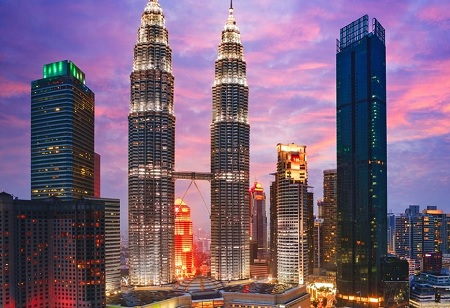
Malaysia to Build Largest Integrated Circuit Design Park in Southeast Asia

 The Malaysian government has announced plans to construct Southeast Asia's largest integrated circuit design park, accompanied by incentives such as tax breaks, subsidies, and visa exemption fees. This initiative aims to draw global tech companies and investors, with the ultimate goal of transforming Kuala Lumpur into a leading regional digital hub. By 2030, Malaysia aims to rank among the top 20 countries in the global startup ecosystem index.
The Malaysian government has announced plans to construct Southeast Asia's largest integrated circuit design park, accompanied by incentives such as tax breaks, subsidies, and visa exemption fees. This initiative aims to draw global tech companies and investors, with the ultimate goal of transforming Kuala Lumpur into a leading regional digital hub. By 2030, Malaysia aims to rank among the top 20 countries in the global startup ecosystem index.
Prime Minister Anwar Ibrahim highlighted that Malaysia's plan for the integrated circuit design park signifies a strategic shift from backend chip assembly and testing towards more lucrative front-end design activities. As a significant player in the semiconductor industry, Malaysia currently accounts for approximately 13% of global testing and packaging. The park, supported by Malaysia's central Selangor state, will host esteemed anchor tenants and engage in partnerships with international companies like British chipmaker Arm Holdings, although Anwar did not elaborate on specific details.
During the KL20 Summit event, Prime Minister Anwar Ibrahim announced that Malaysia's sovereign wealth fund, Khazanah Nasional, will establish a fund dedicated to investing in innovative, high-growth Malaysian enterprises. With an initial allocation of 1 billion ringgit ($209 million), this initiative aims to bolster support for Malaysian startups by launching new policies.
According to Economy Minister Rafizi Ramli, the government is set to provide incentives targeting foreign venture capital firms, tech entrepreneurs, and unicorn startups valued at $1 billion or more who are interested in investing in Malaysia. These incentives will encompass subsidized office spaces, exemptions on employment passes, relocation services, and reduced corporate tax rates. "We want to attract global unicorns to enter Malaysia, so that high-skilled and high-value jobs are created, besides developing a pipeline of future entrepreneurs and senior leaders in tech", Rafizi said.

